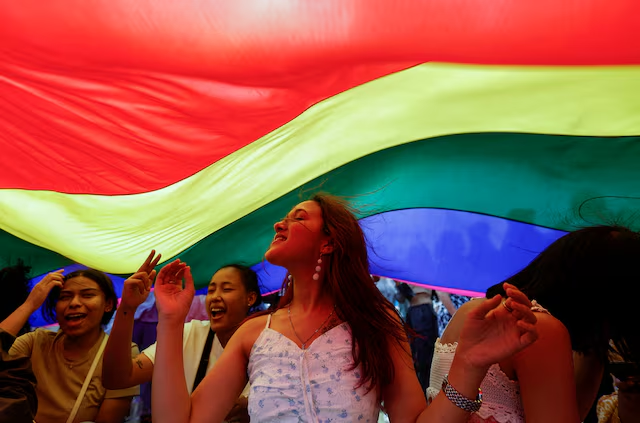The progressive wave of same-sex marriage legalization in Asia has come to a surprising halt. Just a few years ago, Taiwan made headlines as the first Asian country to legalize same-sex marriage, igniting hopes that more countries in the region would follow suit. LGBTQ+ activists were optimistic that this was the beginning of a broader movement for equal rights in Asia. However, the momentum seems to have stalled, and the political landscape has shifted, leaving many disheartened.
In countries like Japan and Thailand, which were seen as likely candidates for marriage equality, progress has slowed. Japan’s constitution, which defines marriage as a union between a man and a woman, has been a major obstacle. Despite public support for same-sex marriage, legal reforms have been slow to materialize, and recent court rulings have upheld the constitutional definition, stalling progress.
Thailand, which had been on the cusp of legalizing civil unions, has also faced setbacks. Political instability and conservative backlash have delayed reforms, leaving LGBTQ+ individuals in a state of uncertainty. Other countries, such as Malaysia and Indonesia, have seen a rise in anti-LGBTQ+ sentiment, making the prospect of marriage equality seem even more distant.
The lack of progress is a reminder of the complex cultural and political factors at play in Asia. While the region has made significant strides in LGBTQ+ visibility and rights, the path to marriage equality remains fraught with challenges. Activists remain hopeful, but the road ahead is likely to be long and difficult as conservative forces push back against the growing calls for change.











